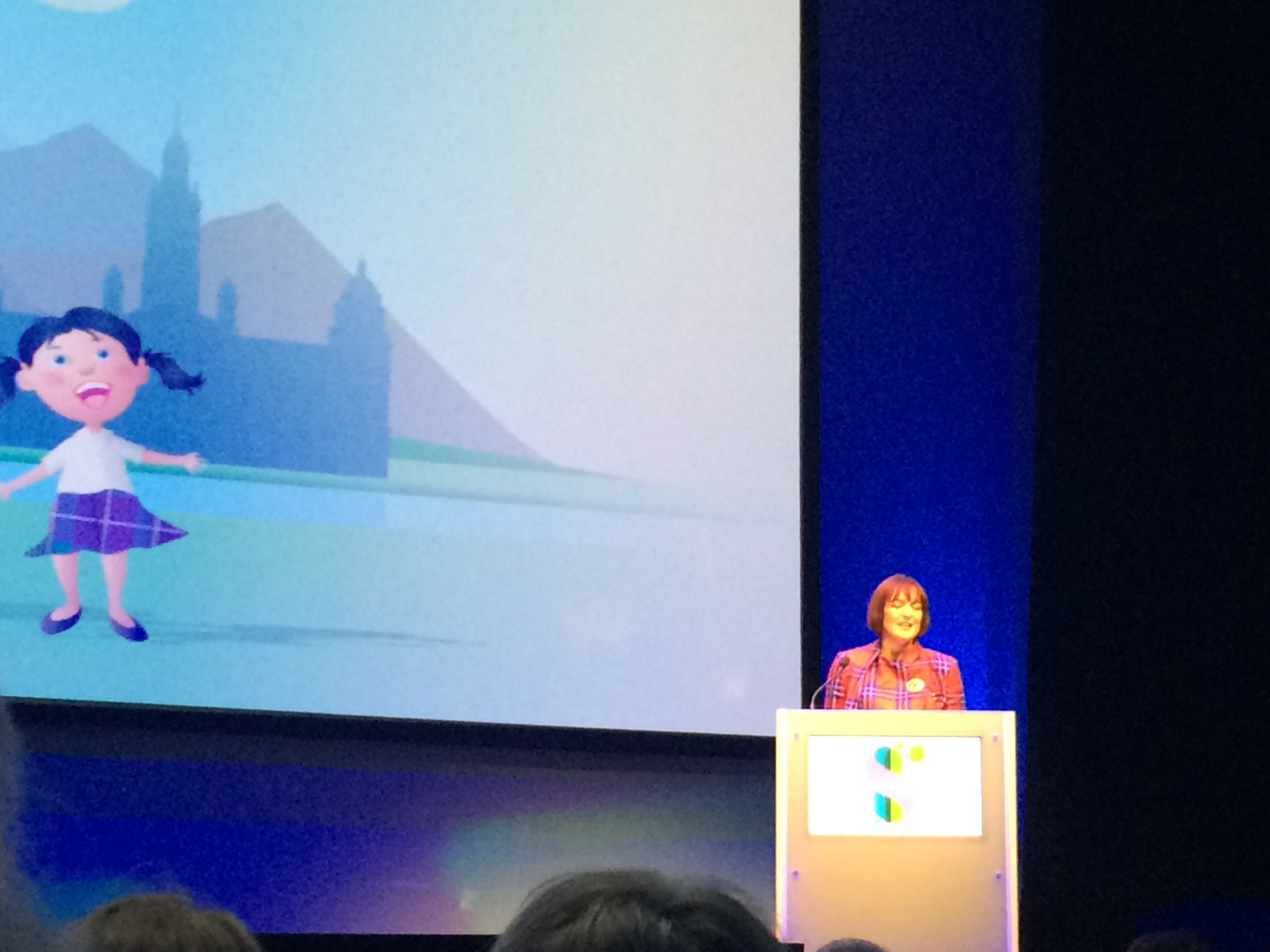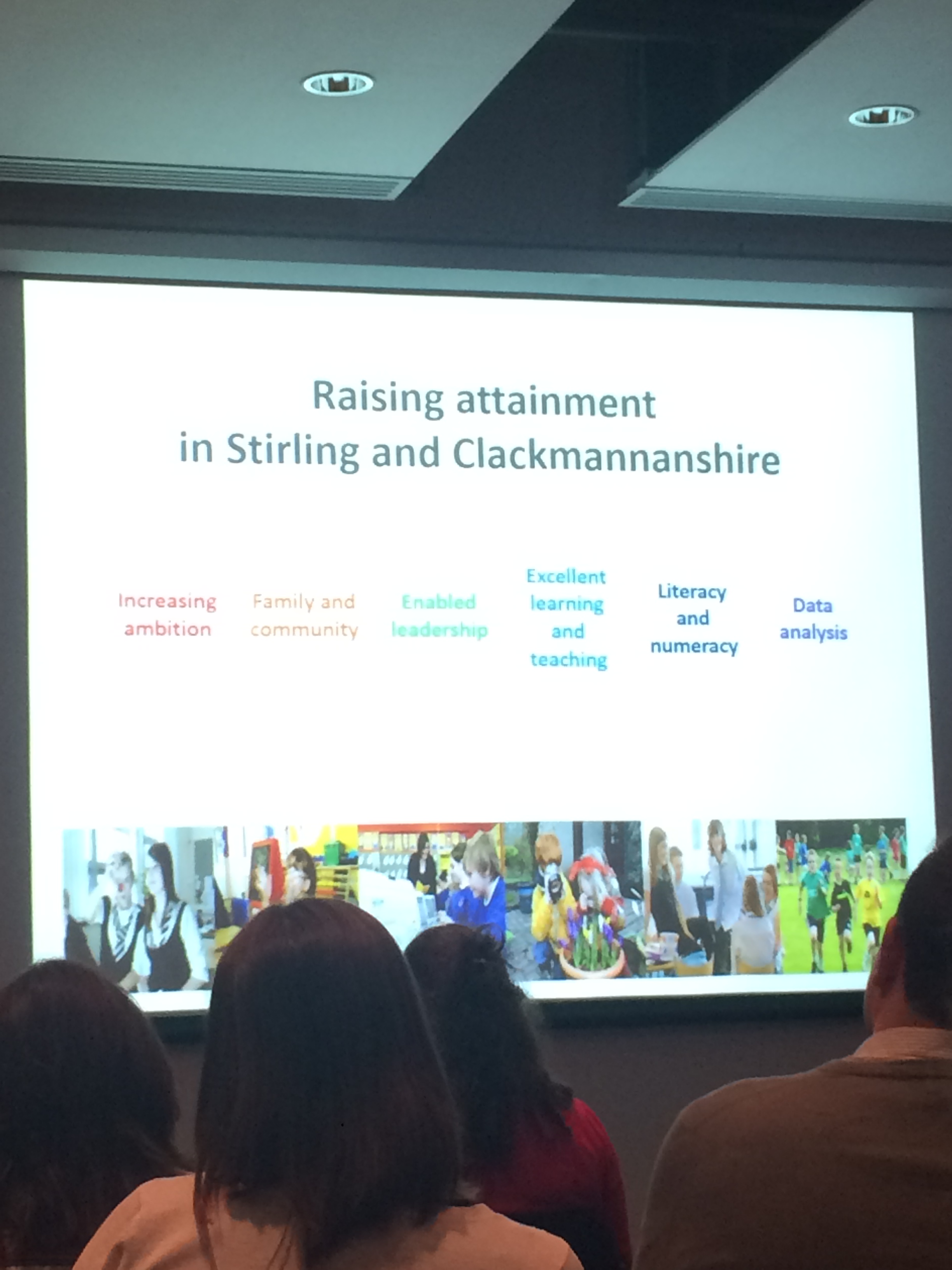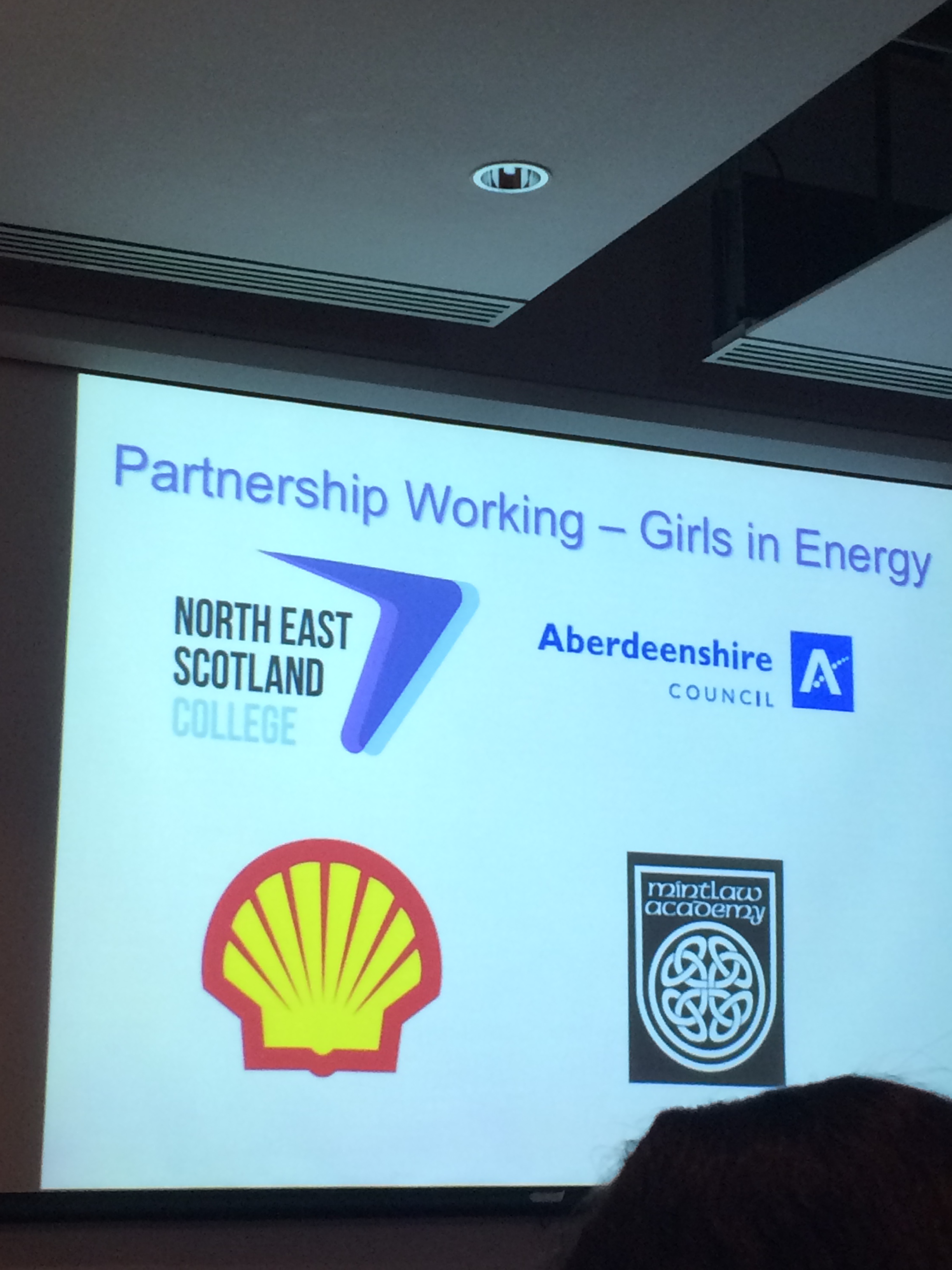By Rebecca Jackson
“High quality and equitable outcomes for all” – that was the theme of this year’s Scottish Learning Festival held last week at the SECC in Glasgow. A mix of academic and policy based seminars, converged with practitioner based learning during the session on Wednesday.
Out of a packed schedule we chose to attend the launch of a new initiative to encourage more STEM teachers; information on the Scottish Attainment Challenge, delivered by Education Scotland and the Scottish Government; and a promotion of employment partnership learning, showing how schools and colleges can engage more with local business to provide opportunities for students.
A fundamental commitment of the Scottish Government
The keynote speech on Wednesday was delivered by Angela Constance MSP, Minister for Education at the Scottish Government. In her address, she stressed the importance of the key themes of the conference, which were collaboration, best practice and ensuring that no child in Scotland should be unable to fulfil their potential at school because of their background or their ability to pay.
Scottish education she said, would be “driven by evidence of ‘what works’ “ and “education in Scotland must be about ability to learn, not ability to pay, at all levels” and that this was a fundamental commitment on the part of the Scottish Government.
She also launched a new initiative aimed at getting more STEM teachers into the teaching system in Scotland. Teachers, she said, were key not only to teaching but to inspiring students to pursue subjects to a higher level.
She awarded the Robert Owen Award for an Inspiring Educator to Professor Graham Donaldson, the man behind Teaching Scotland’s future report on the education of Scotland’s teachers.
Tackling the attainment gap: the Scottish Attainment Challenge
The Scottish Attainment Challenge was promoted as an accelerator of change, building on what has already been done in Scotland and using core values and agreed outcomes to create a system which takes a uniquely Scottish approach. The focus is on 4 key areas, and is delivered by a three way framework which uses a national hub, inter authority collaboration and support and the Scottish Attainment Fund.
The four key areas are:
- Collaboration for improvement
- High quality teaching and learning
- Linking with family and community
- Supporting nurture and well-being.
Speakers in this seminar emphasised that in Scotland, policy needs to be driven by what works. The challenge, they said, could not be delivered in isolation. Kevin Helman from Stirling and Clackmannan provided a local authority perspective. He highlighted the role of head teachers sharing best practice among schools.
The Girls in Energy Programme
Employment partnerships between schools and businesses could be a key way to promote vocational learning and encourage STEM subjects in schools. We’ve written before on this blog about the need to build STEM skills in the UK and especialy the importance of providing girls with STEM role models.
It was encouraging therefore to hear in another seminar session about the Girls in Energy programme, an Aberdeenshire based project between Mintlaw Academy and Shell.
The project provides a useful blueprint which could be recreated across Scotland. The programme combines:
- blended learning, of academic and vocational qualifications (2 HNC’s and 1SVQ level 2);
- industrial visits;
- a 2 week placement.
There was an emphasis on how the scheme boosted employability skills, including interview technique, presentation skills and communicating with others, equipping the girls involved with practical skills valued by employers.
Practitioners and students who have been through the scheme were keen to stress that the scheme could easily be recreated if strong relationships between education and industry/business are forged. They highlighted the potential in engineering, construction and other industries which could follow the same outline as their model.
All that is good about Scottish education
The conference highlighted all that is good about the Scottish education sector. The stalls and exhibition space were filled with people who are passionate about providing a better, more equal and well-rounded education for children in Scotland.
However the conference also emphasised the core values of what academics and practitioners feel is needed to drive education forward in the future – an understanding and sharing of best practice and resources, and the ability to integrate multiple aspects of learning to create a better experience for teachers, local authorities and children alike.
Enjoy this article? Read some of our other popular blogs on education:
- Brain food: the impact of breakfast on children’s educational attainment
- Creative contribution – the value of arts education
- Educational outcomes of looked after children briefing
- Graduating into a brighter future?
- Young people’s quest for work experience hampered … by lack of work experience
- Improving attainment … what recent evaluations tell us
Follow us on Twitter to see what developments in public and social policy are interesting our research team.
Share
Related Posts
A recent item on BBC Radio 4’s Today programme generated an unusually high number of responses from listeners. A man who had lost his job in the financial services sector at the age of 57 described his difficulty in trying ....
By Donna Gardiner While free school meals (FSM) have been available in England on a means-tested basis since 1944, recent years have seen a renewed focus upon the potential benefits of providing free school meals to all school-aged children. Currently, ....
By Robert Kelk and Chris Drake A new start for an old challenge? The recent appointment of Marc Lemaître as the European Commission’s director general for research and innovation (R&I) has returned Europe’s R&I gap to the spotlight. Previously head ....
By Hannah Brunton UNESCO’s Global Media and Information Literacy Week 2022 takes place from 24-31 October 2022 under the theme of “Nurturing Trust”, giving governments, educators, information professionals, and media professionals the chance to discuss and reflect on critical issues ....



